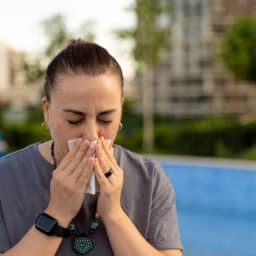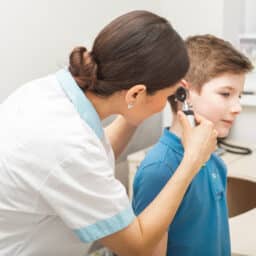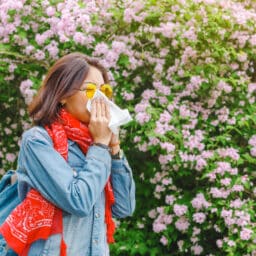Why Do My Allergy Symptoms Feel Worse at Night?

Allergies are commonly associated with the daytime because you are likely to encounter allergens (pollen, dander, mold etc.) when you’re out and about. However, many people, especially those with nasal allergies, feel their symptoms worsen at night. What Triggers Nighttime Symptoms? Two common reasons your allergy symptoms may worsen at night include: How Can You…
Are Allergies Getting Worse?

More than 100 million people in the U.S. experience different types of allergies each year. If you’ve lived with allergies for years, only to notice that they are gradually getting worse, it is natural to feel frustrated. One possible cause for the increase in your allergy symptoms is climate change. How Does Climate Change Affect…
Why You Shouldn’t Ignore Your Allergies

Allergies are a common ailment in the U.S., with more than 100 million people experiencing them each year. They’re sometimes viewed as a mere inconvenience rather than a serious health concern. However, ignoring your allergies can lead to health issues and impact your quality of life. Understanding why it’s essential to address allergies can motivate…
Watch Out for These Common Georgia Allergens

Camping around Lake Clara Meer, riding your bike along the trails or having picnics in the park are all great ways to start your spring and summer off right. However, if you’re part of the 20% of the United States population living with seasonal allergies, you may want to keep an extra eye out for…
Can Allergies Impact My Energy Level

As the seasons change and pollen fills the air, many individuals find themselves grappling with the familiar symptoms of allergies. While sneezing, congestion and itchy eyes are common manifestations of allergic reactions, allergies could also impact your energy level. Understanding Environmental Allergies Environmental allergies, also known as allergic rhinitis or hay fever, occur when the…
What Is the Relationship Between Allergies and Glue Ear?

Glue ear, or otitis media with effusion (OME), is a common condition arising when fluid builds up in the space behind the eardrum. When fluid builds up, usually as a result of an infection or blocked Eustachian tube, it becomes sticky, leading to symptoms including: Young children are the most likely to develop glue ear,…
How Does Fruit Juice Affect Allergy Medication?

Allergies are common, affecting more than 100 million people in the U.S. each year. An allergic reaction occurs when the immune system overreacts to harmless substances such as pollen, pet dander or certain foods, leading to symptoms like sneezing, itching and congestion. To manage these symptoms, many people turn to allergy medications, including antihistamines, decongestants…
Home Remedies for Allergy Relief

More than 100 million people in the U.S. experience allergies each year. Whether you’re allergic to the pollen floating in the spring air, dust mites, pet dander, mold or all four, allergy symptoms can wreak havoc on your life. In addition to seeking treatment from an allergy specialist, a few home remedies can help relieve…
Exploring Allergies: How They Affect the Ears, Nose and Throat

Allergies occur when the immune system overreacts to substances that are usually harmless. These substances, known as allergens, can be found in the environment and include things like pollen, mold and animal dander. When someone has an allergic reaction, it’s common for the symptoms to affect the ears, nose and throat simultaneously or separately. The…
What Is Allergy Avoidance and How Can It Help Manage Your Symptoms?

Allergies are the body’s overreaction to a foreign stimulus that would otherwise be considered harmless. An allergic reaction is the way the body responds to that stimulus. Common allergic reactions can include itching, hives, runny or stuffy nose, watery eyes, sneezing, coughing and difficulty breathing. Allergies are the sixth-leading cause of long-term illness in the…